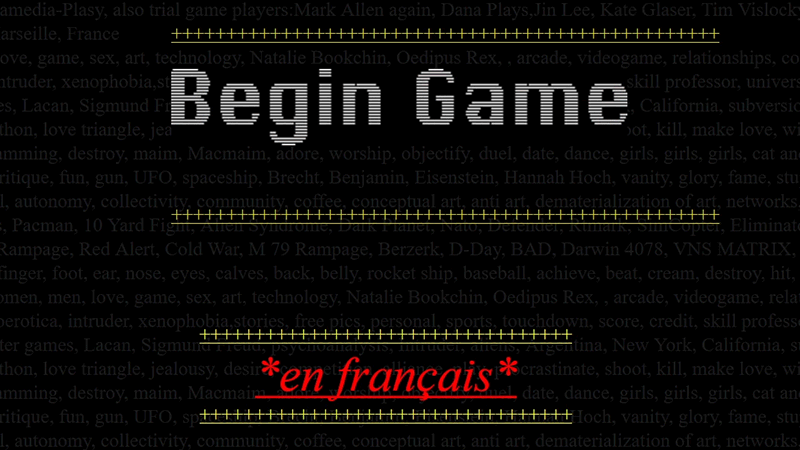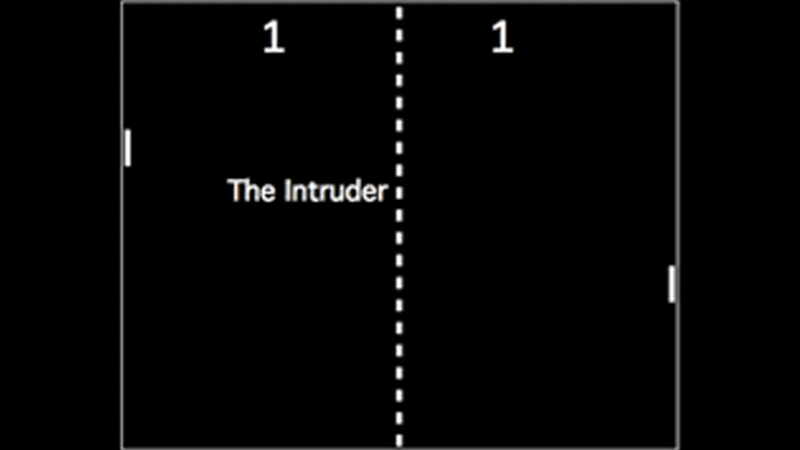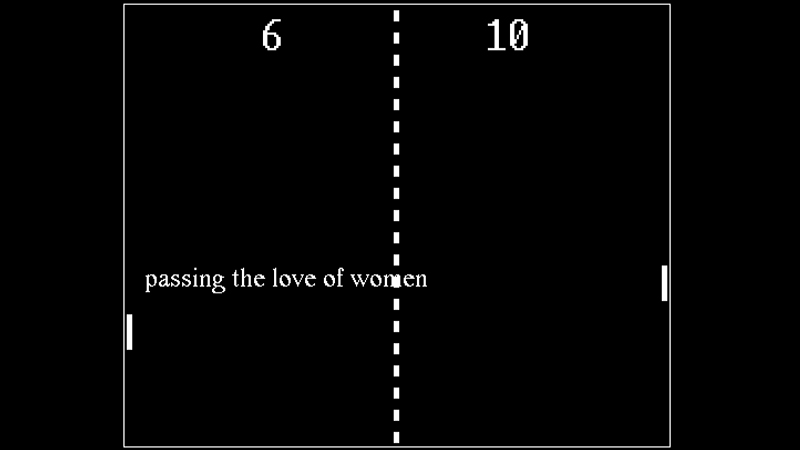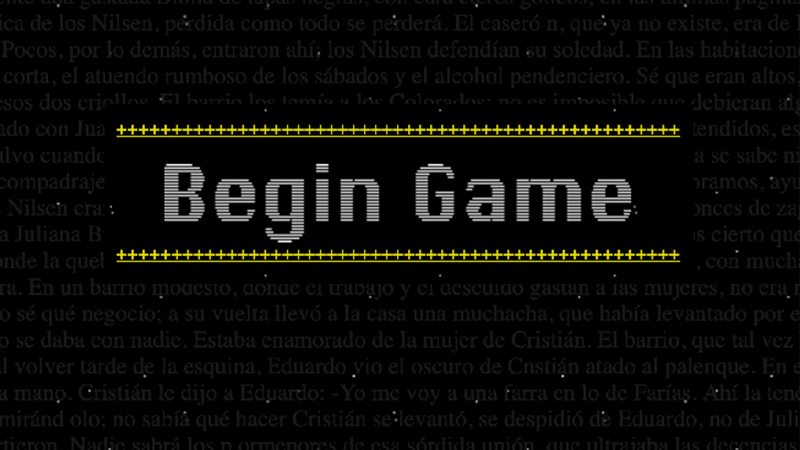"In Natalie Bookchin's piece, The Intruder, we are presented with a sequence of ten videogames, most of which are adapted from classics such as Pong and Space Invaders. We interact via moving or clicking the mouse, and by making whatever we make of/with/from the story. Meaning is always constructed, never on a plate. The interaction is less focused on videogame play than it is on advancing the narrative of the story we hear throughout the presentation of the ten games. The story is the Jorge Louis Borges piece The Intruder with a few changes. The female in the story is 'the intruder' She is as a possession of the two closely bonded miscreant brothers enmeshed in a hopeless triangle of psycho-sexual possession with homoerotic undertones. Finally one of them kills her to end the tension between the two men. Game over. Story over. Bookchin presents an awareness of being an intruder, herself, in the (previously?) male-dominated world of videogame creation and enjoyment. The videogame paradigms are subverted, mocked, and implicitly criticized for their shallow competitive and violent nature not unrelated to the nature of the violence of the males.
Although moving and clicking the mouse is associated with advancing the videogames, the videogames are subordinated to the story; the videogames are used as and within literary devices. The videogames are literary devices in that they are programmed machines functioning less to advance gameplay as triggers for the advancement of the audio of the story. The videogames are also functioning within other comparative/metaphoric literary devices. We compare the worlds of the games with the worlds of the story. We compare ourselves in the world of the games with ourselves in the world of the story, i.e., we compare the goals of the games with our goals in reading/listening to and understanding the stories. We cannot enjoy the games in the way that videogames are meant to be enjoyed [. . . .] The artist mops the floor with the videogames. Art 10. Videogames 0. Women cheer this artwork like few other Net-based works. It is deservedly famous both as statement and for its formal literary innovation." --from ELMCIP.net
2 COPIES IN THE NEXT
Published in 2003 by Poems That GO in Volume 14.
This copy was given to Megan Sapner Ankerson and Ingrid Ankerson in Spring 2019.
PUBLICATION TYPE
Journal
ORIGINAL URL
http://poemsthatgo.com/gallery/fall2003/intruder/index.htmlPublished in 1999 by Riding the Meridian.
This copy was given to the Electronic Literature Lab by Jennifer Ley in Spring of 2019.
PUBLICATION TYPE
Journal
COPY MEDIA FORMAT
Web



